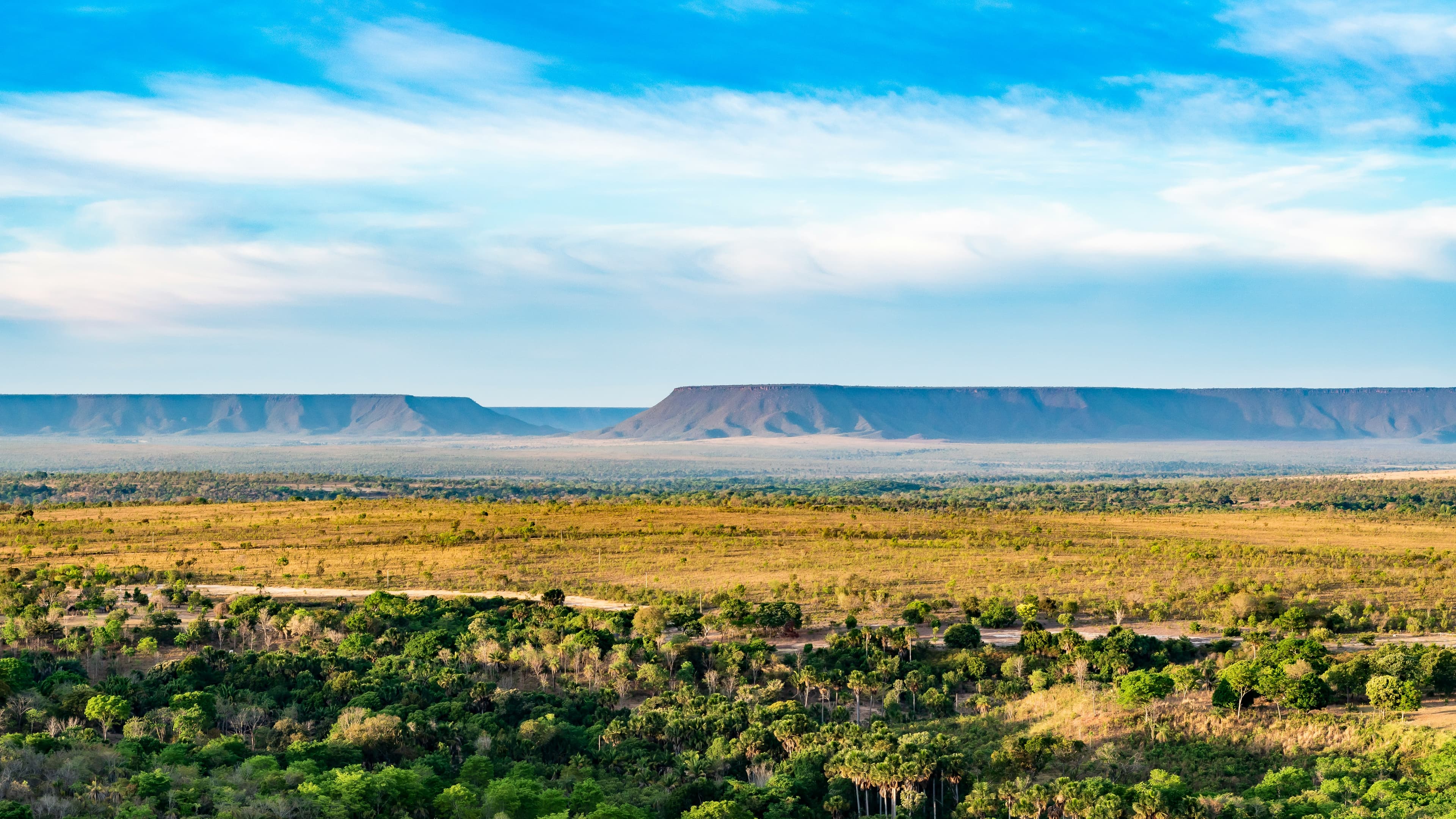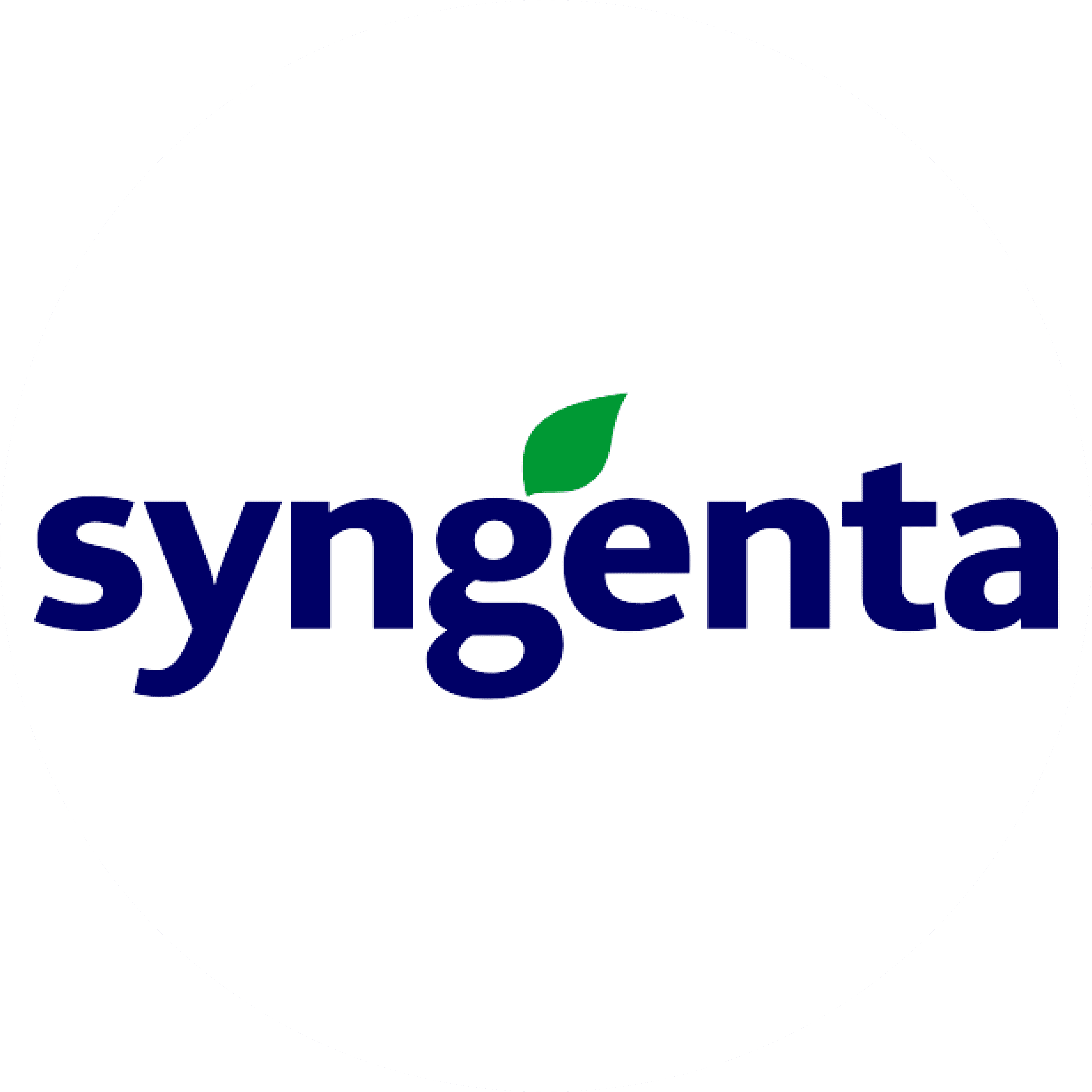
Restore degraded pastures in Brazil
 Syngenta
SyngentaSummary
Enabling farmers to expand planted areas over degraded pastures instead of clearing native vegetation to do so, thus contributing to preservation.
Context
Syngenta Crop Protection is one of the world's leading agricultural companies, driven by a mission to help feed the world safely while nurturing our planet. Their goal is to enhance the sustainability, quality, and safety of agriculture through world-class science and innovative agricultural solutions. Syngenta leverages technologies to empower farmers globally, enabling them to make optimal use of limited agricultural resources.
REVERTE® an initiative spearheaded by Syngenta, focuses on restoring degraded soils in Brazil. This program aims at expanding available agricultural land without causing deforestation. REVERTE® primarily operates in the Cerrado biome, a crucial water source and diverse ecosystem covering over 2 million square kilometers - an expansive subtropical region equivalent in size to France, Germany, Spain, Italy, and Norway combined. The program brings together key stakeholders from public and private sectors, as well as civil society, to implement this ambitious project.
Brazil boasts 160 million hectares of pastureland, with estimates suggesting that at least 50% - a staggering 85 million hectares - are in some state of degradation. The Cerrado alone contains approximately 28 million hectares of degraded pastures. Launched in 2019, REVERTE® aspires to restore one million hectares by 2030. Beyond improving soil health, the program's primary benefit lies in increasing agricultural cultivation areas and bolstering food security without additional deforestation. The implementation of regenerative agricultural practices, including crop rotation, cover cropping, and no-till farming, aids in sequestering carbon in the soil, thereby mitigating agriculture's impact on climate change.
This holistic approach not only addresses immediate agricultural needs but also contributes to long-term environmental sustainability. By rehabilitating degraded lands, REVERTE® creates a win-win situation: it expands productive agricultural areas while simultaneously promoting biodiversity and ecosystem health. The program serves as a model for sustainable agricultural development, demonstrating how innovative thinking and collaborative efforts can lead to solutions that balance food production with environmental conservation.
Moreover, REVERTE®’s focus on the Cerrado biome is particularly significant given the region's ecological importance and the threats it faces from agricultural expansion. By targeting primarily this area, the program not only aids in soil restoration but also plays a crucial role in preserving one of the world's biodiversity hotspots. This strategic approach underscores the importance of tailored, region-specific solutions in addressing global agricultural and environmental challenges.
Solution
REVERTE® was first developed in 2019 by leading agtech company Syngenta and global conservation organization The Nature Conservancy (TNC). Syngenta’s goal is for 1 million hectares of degraded soil to be recovered and turned into productive areas throughout Brazil by 2030. A significant portion of that will be in the Cerrado biome, where Syngenta partners with TNC. The program supports farmers in adopting regenerative farming practices such as crop rotation, cover cropping, and no-till farming. These practices improve soil health, increase carbon sequestration, and enhance farm productivity. The program provides farmers with agronomic advice, financial support, and access to innovative agricultural technologies.
Growers who wish to join the REVERTE® program must comply with the following social and environmental criteria:
Comply with current and applicable environmental legislation and respective infra-legal norms;
Not to suppress native vegetation, even with authorization from the environmental agency, throughout the scope of the credit line, on the REVERTE® Program Property;
Show no illegal deforestation after July 22, 2008 on all properties of the economic group;
Have zero deforestation after 2018 on the property where REVERTE® Program will be implemented;
Follow all environmental legislation for conservation and preservation of Brazilian biomes;
Comply with current legislation in cases of property overlap with Conservation Units (UC), Quilombola communities, and Indigenous Lands;
Have no areas listed on the embargo lists of environmental agencies, especially the Brazilian Institute of Environment and Renewable Natural Resources (IBAMA);
Not to adopt practices that could be considered as Work in Conditions Analogous to Slavery, and not be included in the official Slave Labor List;
Respect legislation through land possession and registration documents
This structured finance approach by ITAU BBA demonstrates a sophisticated understanding of the unique needs of agricultural businesses. The long-term credit line, with its extended 10-year term and until 3 year grace period, provides farmers with the financial flexibility needed to implement sustainable practices and invest in long-term soil restoration projects. This approach is crucial for initiatives like REVERTE®, where the benefits of soil restoration may take several years to fully materialize.
The inclusion of a short-term, revolving credit line for agricultural working capital complements the long-term financing. This dual approach ensures that farmers have access to both strategic, long-term investments and operational, short-term funding. By aligning the short-term credit with crop cycles, ITAU BBA shows a nuanced understanding of agricultural cash flows and seasonality.
Figure 1: TNC, Syngenta, Itaú BBA teams in the field

Figure 2: Activity in the field

Impact
Sustainability impact
Climate
REVERTE® targets Scope 1 and Scope 3 emissions by enhancing soil carbon sequestration and reducing greenhouse gas emissions. The program has an estimated carbon sequestration potential of 0.5 to 4.0 tons CO2e per hectare per year, depending on the cultivation system, soil type, and duration of practice adoption.
Nature
The initiative promotes biodiversity by preserving excess legal reserve areas and restoring soil enzymatic activity, which increases soil microorganism populations. The initiative also engages only with farmers who comply with environmental legislation and show no illegal deforestation after 22 July 2008 on all properties of the economic group and zero deforestation after 2018 on REVERTE® program property.
The program’s rigorous environmental criteria, the REVERTE® has calculated that a further 30,000 hectares of vegetation that may otherwise have been destroyed have been preserved.
Social
REVERTE® improves farmers' economic outcomes by increasing yields and providing access to preferential credit terms. The program also supports the rights of Quilombola communities and Indigenous peoples as farmers must comply with labor registration and respect the rights of these communities. The program aims to produce integrated food systems, ensuring food security for farming families, increase lifelong income, empower women in rural areas and create favorable conditions for future generations to remain in rural environments.
Business impact
Benefits
REVERTE® enhances farm productivity and stability, increases market access, and aligns with international buyer sustainability demands. The program also improves Syngenta's market share and institutional image.
REVERTE®’s model is mutually beneficial for farmers and for business. REVERTE®’s financing structure is attractive for farmers as it provides preferential credit terms, consequently supporting them in the challenging early stages of the transition to more sustainable farming practices. The program also helps farmers mitigate the ever-increasing risks posed by climate change, thus building resilience. By promoting soil health, REVERTE® delivers an immediate productivity gain – 92% of farms monitored saw a yield increase between the first and second year of enrollment, with an average 9% increase. It also ensures farm productivity and stability in the long term.
Other program benefits include market access through alignment with international buyer sustainability demands, knowledge transfer through access to innovative technologies and participation in a community of forward-thinking farmers, and legal security through compliance with environmental legislation.
Similarly, Syngenta has reported increased market share and crop protection and biological product sales growth, improved relationships with growers, as well as enhanced institutional image.
Costs
The program requires investment from Itaú BBA, with a total of USD $379 million already allocated and USD $1.6 billion committed to 2030. To de-risk Itaú BBA’s credit lines, Syngenta offers a 13% first loss guarantee, whereby the company commits to partially absorbing initial losses incurred by the farmers, which limits Itaú BBA’s risk exposure. The collateral structure, using both real estate and CPRs, provides a balanced approach to risk management.
Itaú BBA offers both a long-term and a short-term credit line. This dual approach ensures that farmers have access to strategic, long-term investments (10 years) and operational, short-term financing as revolving credit aligned with crop cycles.
Implementation
Typical Business profile
The initiative is most relevant for:
row crop growers in Brazil , particularly those with degraded pastures.
Agriculture & Food business wiling to collaborate with local banks and invest in sustainable agriculture
Approach
Growers wishing to enroll in REVERTE® are required to meet robust eligibility criteria developed by TNC, based on the organization’s Environmental Framework. These criteria require farmers to comply with environmental and labor legislation, respect the rights of Quilombola communities and Indigenous Peoples, respect land registration rules and adhere to strict no-deforestation rules:
Farmers undergo a credit assessment by Itaú BBA.
Agronomic consultants from Syngenta develop bespoke solutions for each farmer.
Agronomists also ensure compliance with Brazilian Agricultural Research Corporation (EMBRAPA) scientific guidelines and provide growers with agricultural technologies, fostering innovation in farming practices.
Farmers implement regenerative practices with ongoing agronomic support.
The program monitors progress through a combination of remote sensing, satellite imagery, GIS technology and on-the-ground data collection. REVERTE® relies on three key scientific partners to gather this data:
Agrotools – providing the socio-environmental analysis tool for the program;
Lapig – responsible for soil carbon studies;
APSI and Exata – in charge of soil sampling and analysis for chemical, physical and biological properties.
Stakeholders involved
Project Leads: Syngenta, The Nature Conservancy (TNC)
Company functions: Commercial teams, sustainability teams
Main providers: Itaú Bank BBA, Agrotools, Lapig, APSI, Exata
Key parameters to consider
Initiative maturity: Well-established practice, pushing for long term solution (10 years) and based on collaboration: Syngenta-Itaú Bank BBA. Introduced in 2019, first payment in 2021.
Technical constraints: Availability of funding and strong financing case. Clear and catered technical assistance and analysis of farm conditions
Subsidies: Private investment from Itaú BBA Bank fundamental to keep the project going as well as Syngenta offering first loss guarantee.
Implementation and operations tips
Address farmers' key concerns and provide support during the transition to regenerative agriculture.
Establish strong collaboration with local entities
Create a strong business case for your project
Analyse farm conditions and operate with technicians
Monitor changes, developments and results
Going Further
External links:
Source list: